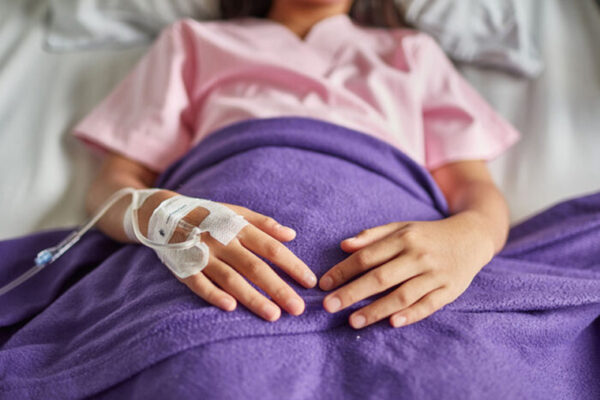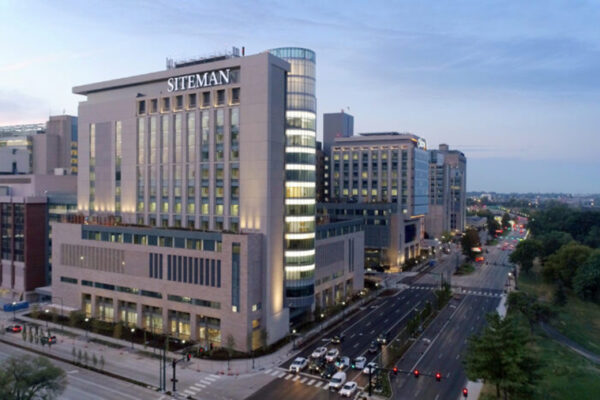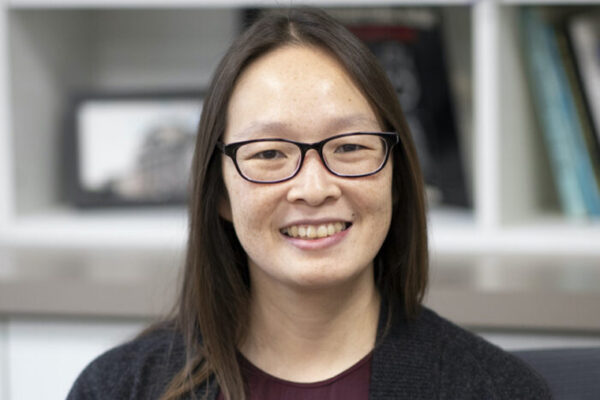A pediatric COVID-19 vaccine clinical trial is underway in St. Louis, led by Washington University School of Medicine. About 140 area children, ages 6 months to 11 years, are to receive the two-shot Moderna vaccine or placebo at St. Louis Children’s Hospital as part of a clinical trial involving about 100 medical institutions in the U.S. and Canada.
Washington University’s infectious diseases physicians began administering injections in August to children ages 6 to 11 years old. These participants will be followed by children ages 2 to 5 years old, and then ages 6 months to just shy of age 2.
The study will help determine how well kids tolerate the vaccine, and their immune response. The U.S. Food and Drug Administration (FDA) has issued an emergency use authorization for the vaccine in adults ages 18 and older.
“Developing safe and effective COVID-19 vaccines for children will be paramount to controlling the pandemic and getting life back to normal,” said Carol Kao, MD, assistant professor in the Division of Infectious Diseases in the Department of Pediatrics and one of the physicians overseeing the trial. “Throughout the pandemic, we have learned that kids can get very sick from COVID-19, and they can transmit the virus to others. Vaccinating kids will allow them to be protected like adults are now and to indirectly protect others in their homes and communities.”
Added Jason Newland, MD, a Washington University professor of pediatrics who is also a part of the trial: “Simply put, vaccines save lives. I’ve recently treated some super-sick kids with significant complications from COVID-19. We need vaccines to protect more children from getting sick.”
Blanketing the study is a sense of urgency due to the delta variant surging as kids have returned to school. In August, Moderna nearly doubled the study’s size to enroll up to 13,275 children from across the United States and Canada. The FDA already is reviewing data from a recent clinical trial evaluating the Moderna vaccine in older adolescents.
The new study in younger children is randomized, double-blinded, and placebo-controlled — the gold standard for clinical trials. This means the children are randomly selected to receive either the vaccine or a placebo, and that neither the families nor the health-care professionals administering the vaccine know whether participants receive the vaccine or the placebo. As is the case for adults, the injections are in the upper arm or thigh, 28 days apart.
At the Washington University site, nonwhite children will comprise half of the participants in the study, allowing researchers to also evaluate the vaccine’s effectiveness by race.
Health-care workers are monitoring the children’s health and potential reactions via telemedicine appointments and on-site visits. The children and their parents are keeping electronic diaries to record possible symptoms and keep track of health-care visits.
St. Louis area parents expressed excitement for their children to participate in the study.
“We’ve been waiting for this opportunity,” said Jamie Antisdel, a few days after her 9-year-old twin boys, Ames and Emry, received their first injections with no complications. “It’s concerning to send Ames and Emry back into the classroom while the number of COVID cases and severity of illness rise in children. If being a part of the vaccine trial affords them some protection against the virus, we see it as a major benefit. I can say with confidence that the boys hope this will eventually help us all get back to normalcy sooner rather than later.”
Ashley Haden felt elated after learning that her sons, Shepherd, 10, and Crew, 8, could participate in the Moderna vaccine trial. “Our family is eager to play a small role in helping demonstrate the efficacy and safety of the vaccine in younger children. We’re hopeful that by seeing our successful participation in the study, our family, friends and community members will be encouraged to get the vaccine when it becomes approved for this age group.”
Washington University School of Medicine’s 1,700 faculty physicians also are the medical staff of Barnes-Jewish and St. Louis Children’s hospitals. The School of Medicine is a leader in medical research, teaching and patient care, consistently ranking among the top medical schools in the nation by U.S. News & World Report. Through its affiliations with Barnes-Jewish and St. Louis Children’s hospitals, the School of Medicine is linked to BJC HealthCare.


